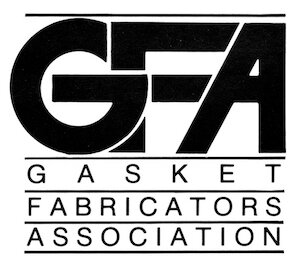Medical Grade Silicone
ElastaPro manufactures premium medical grade silicone engineered for demanding healthcare, pharmaceutical, and life‑science applications. Our materials deliver the biocompatibility, purity, and performance required for medical devices, fluid handling, diagnostics, wearables, and components that must meet strict regulatory and safety standards.
Whether you need medical silicone sheet, platinum‑cured silicone, USP Class VI materials, or custom‑formulated compounds, ElastaPro provides consistent, U.S.‑made silicone solutions with tight property control and fast lead times.
What Is Medical Grade Silicone?
Medical grade silicone is a high‑purity elastomer designed for applications requiring:
- Biocompatibility
- Chemical inertness
- Low extractables and leachables
- Sterilization resistance
- Long‑term stability inside or outside the body
ElastaPro supplies medical silicones suitable for:
- Non‑implantable medical devices
- Short‑term implantable components
- Diagnostic and laboratory equipment
- Wearable medical technologies
- Pharmaceutical processing
Our formulations are engineered for safety, consistency, and regulatory compliance.
Key Advantages of ElastaPro Medical Grade Silicone
Biocompatible & Chemically Inert
Safe for skin contact, mucosal contact, and short‑term implantation depending on grade.
Resistant to Sterilization
Compatible with:
- Autoclave
- Gamma radiation
- E‑beam
- EtO sterilization
High‑Purity, Low‑Volatile Formulations
Ideal for sensitive medical and pharmaceutical environments.
Excellent Mechanical & Thermal Stability
Performs reliably across extreme temperatures and repeated flexing.
Non‑reactive, Non‑toxic, and Hypoallergenic
A trusted material for patient‑facing and clinical applications.
Available Medical Silicone Grades
ElastaPro offers a full portfolio of healthcare‑focused silicone materials, including:
- USP Class VI Silicone
- FDA‑Compliant Silicone
- ISO 10993 Silicone
- European Pharmacopoeia
- Platinum‑Cured Silicone
- High‑Strength Medical Silicone
- Low‑Outgassing Silicone
- Custom Colors & Formulations
- Medical Silicone Sheet
- Medical Silicone Compound (Uncured)
Each batch is manufactured with tight property control and supported by documentation for regulatory and quality assurance needs.
Medical Silicone Sheet
Our medical silicone sheet is engineered for precision and consistency, making it ideal for:
- Gaskets & seals
- Diagnostic equipment
- Wearable medical devices
- Pharmaceutical processing
- Fluid handling systems
- Lab and analytical instruments
Available Options
- Thicknesses from 0.005″ to 0.500″
- Widths up to 62″
- Custom colors
- PSA backing available
- Calendered or molded sheet
Medical Silicone Compound (Uncured)
For molding, extrusion, or custom fabrication, ElastaPro supplies uncured medical silicone compound with:
- Controlled rheology
- Excellent mold flow
- High tear strength
- Consistent cure characteristics
Available in peroxide‑cured or platinum‑cured systems.
Applications of Medical Grade Silicone
Medical grade silicone is used across the healthcare ecosystem, including:
- Medical device components
- Seals, valves, diaphragms, and gaskets
- Wearable sensors and patches
- Pharmaceutical tubing and processing
- Diagnostic and laboratory equipment
- Short‑term implantable components
- Respiratory and anesthesia devices
Its combination of purity, flexibility, and biocompatibility makes it one of the most trusted materials in modern healthcare.
Why Engineers Choose ElastaPro
ElastaPro is built by silicone industry veterans with decades of experience in medical and high‑purity elastomers. Customers choose us because we deliver:
- U.S. manufacturing
- Fast lead times
- Consistent batch‑to‑batch quality
- Technical support from silicone experts
- Custom formulations and colors
- Responsive service and competitive pricing
We help medical device engineers move from concept to production with confidence.
Request a Quote or Technical Guidance
Whether you need medical silicone sheet, USP Class VI silicone, or custom‑engineered compounds, ElastaPro is ready to support your project.
Contact us today for samples, pricing, or technical recommendations.

